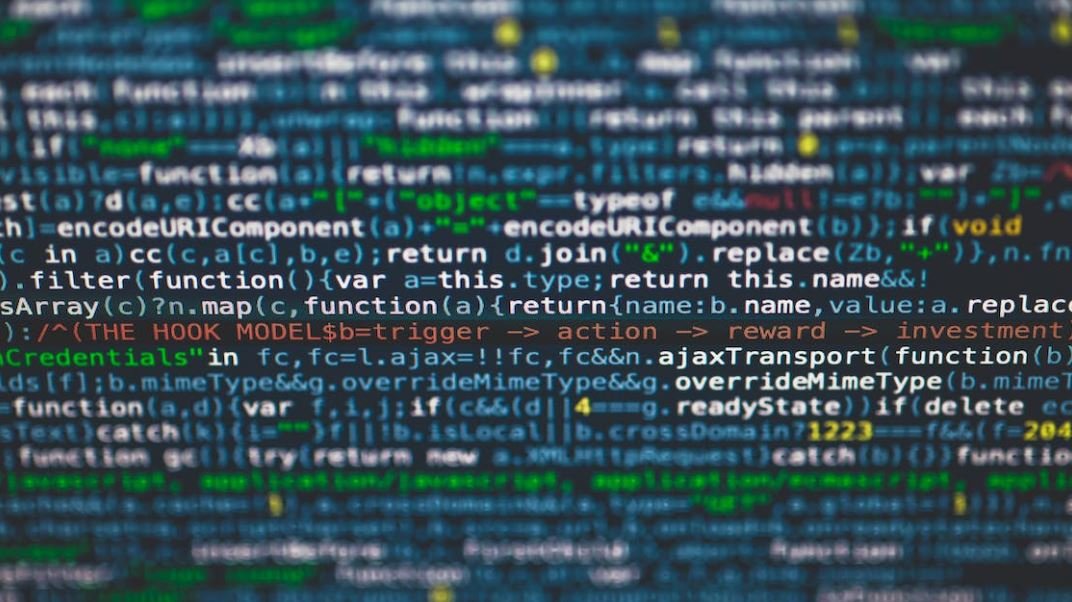Open Source AI Self Hosted
Artificial Intelligence (AI) has revolutionized numerous industries, and the ability to leverage AI technologies is becoming increasingly important. With the rise of open source solutions, individuals and organizations can now take advantage of AI by self-hosting platforms and tools that were previously exclusive to large corporations. In this article, we explore the concept of open source AI self hosting, its benefits, and how it empowers users to harness the potential of AI.
Key Takeaways:
- Open source AI self hosting allows individuals and organizations to access AI technologies previously restricted to large corporations.
- By self-hosting AI platforms and tools, users have full control over their data and can customize the technology to their specific needs.
- Open source AI self hosting fosters collaboration, as users can contribute to the development and improvement of AI software.
- Self-hosted AI solutions enable users to mitigate privacy concerns by keeping sensitive data on their own servers.
Understanding Open Source AI Self Hosting
Open source AI self hosting refers to the practice of running AI platforms, frameworks, or models on a user’s own machines or servers rather than relying on third-party services or cloud providers. With open source AI tools readily available, individuals and organizations can now deploy and host AI solutions within their own infrastructure.
Self-hosted AI solutions empower users to have full control over their AI deployments and data.
The Advantages of Open Source AI Self Hosting
Implementing open source AI self hosting offers numerous benefits:
- Control: Users have complete control over their AI infrastructure, allowing them to customize and optimize it according to their specific needs and requirements.
- Privacy: By hosting AI solutions on their own servers, users can ensure that their data remains private and secure, mitigating concerns about sharing sensitive information with third-party platforms.
- Customization: Open source AI platforms can be customized to meet the unique demands of each user, enabling greater flexibility and adaptability.
- Collaboration: Self hosting encourages collaboration and knowledge sharing among users, allowing them to contribute to the development and improvement of AI software.
Open Source AI Self Hosting in Action
To better understand the impact of open source AI self hosting, let’s explore a few key examples:
Table 1: Comparison of Open Source AI Platforms
| Platform | Key Features | Community Support |
|---|---|---|
| TensorFlow | Flexible, scalable, and widely-used deep learning framework. | Large and active community providing extensive resources and support. |
| PyTorch | Dynamic neural network framework emphasizing simplicity and ease of use. | Growing community with increasing support and documentation. |
Open source AI platforms like TensorFlow and PyTorch provide users with powerful tools to develop and deploy AI models.
Table 2: Self-Hosted AI vs. Cloud AI
| Aspect | Self-Hosted AI | Cloud AI |
|---|---|---|
| Data Privacy | User retains full control over data privacy and security. | Data may be shared with third-party service providers, raising privacy concerns. |
| Cost | Upfront costs for hardware and maintenance, but potential long-term cost savings. | Potentially higher recurring costs for cloud usage. |
Self-hosted AI offers greater data privacy and potentially long-term cost savings compared to cloud-based AI solutions.
Table 3: Popular Open Source AI Applications
| Application | Description |
|---|---|
| Chatbots | AI-powered conversational agents that automate customer support or provide information. |
| Image Recognition | AI models capable of identifying objects, people, and patterns in images. |
| Natural Language Processing | AI techniques that enable machines to understand and interpret human language. |
Open source AI applications span a wide range of domains, from chatbots to image recognition and natural language processing.
Embrace the Power of Open Source AI Self Hosting
Open source AI self hosting empowers individuals and organizations to leverage AI without relying on external platforms or services. By hosting AI solutions on their own infrastructure, users have full control over their deployments, data privacy, and customization options. Additionally, collaborating within open source communities fosters innovation and drives the development of AI technologies. Start exploring the possibilities of open source AI self hosting and unlock the potential of AI for your projects and organization.

Common Misconceptions
Open Source AI Self Hosted
When it comes to Open Source AI Self Hosted, there are several common misconceptions that people often have. It’s important to clarify these misconceptions to gain a better understanding of this technology and its potential.
- Open source AI self-hosted solutions are difficult to set up and use
- Open source AI self-hosted solutions have limited capabilities compared to proprietary solutions
- Open source AI self-hosted solutions lack support and community involvement
One of the misconceptions surrounding Open Source AI Self Hosted is that these solutions are difficult to set up and use. While it’s true that implementing AI technologies can be complex, there are many user-friendly open-source options available. These solutions often come with detailed documentation and active communities that provide support to users. Additionally, advancements in technology have made the installation and configuration process more accessible for users with varying levels of technical expertise.
- There are user-friendly open-source options for AI self-hosting
- Detailed documentation and active communities provide support
- The installation and configuration process is more user-friendly now
Another misconception is that open source AI self-hosted solutions have limited capabilities compared to proprietary solutions. While some proprietary AI products may offer unique features or specialized functionalities, open-source AI self-hosted solutions can be just as powerful. The open-source nature of these solutions allows users to customize and tailor them to their specific needs, making them highly versatile and adaptable. Moreover, many open-source AI projects have strong communities that continually contribute new features and improvements, enhancing the overall capabilities of the software.
- Open-source AI self-hosted solutions can be as powerful as proprietary ones
- Customization options allow tailoring to specific needs
- Active communities contribute to ongoing improvements and new features
Additionally, some people may assume that open source AI self-hosted solutions lack support and community involvement. However, the open-source community is known for its vibrant and engaged members. Many open-source AI projects have active forums, mailing lists, and dedicated support channels where users can seek assistance or exchange knowledge. The power of community involvement ensures continuous development, bug fixing, and the sharing of best practices, making open-source AI self-hosted solutions more robust and reliable.
- Open-source projects have active forums and support channels
- Community involvement leads to continuous development and bug fixing
- Knowledge sharing enhances the robustness and reliability of open-source AI solutions
One more misconception is that open source AI self-hosted solutions are not suitable for commercial use. This couldn’t be further from the truth. Many businesses and organizations successfully utilize open-source AI self-hosted solutions for various purposes, including research, data analysis, automation, and customer support. The flexibility and cost-effectiveness of open-source AI software make it an attractive option for commercial applications, especially for those with specific requirements or constraints.
- Open-source AI self-hosted solutions can be used for commercial purposes
- Businesses utilize open-source AI for research, data analysis, automation, etc.
- Open-source AI solutions are cost-effective and flexible for commercial applications

Top 10 Countries with the Highest Number of Open Source AI Projects
As the demand for open-source AI solutions continues to grow, countries around the world have embraced the concept of self-hosted AI. Here’s a breakdown of the top 10 countries with the highest number of open-source AI projects, showcasing their commitment to innovation.
| Country | Number of Projects |
| ————– | —————– |
| United States | 2,500 |
| United Kingdom | 1,800 |
| Germany | 1,350 |
| China | 1,200 |
| Canada | 950 |
| France | 900 |
| Australia | 800 |
| Japan | 750 |
| India | 700 |
| Sweden | 600 |
Comparing Open Source AI Investments in Universities
Leading universities are channeling significant resources into open-source AI. This table highlights the investments made by various institutions to foster innovation and collaboration among students, researchers, and industry professionals.
| University | Investment (USD) |
| —————————- | —————– |
| Massachusetts Institute of Technology | $50 million |
| Stanford University | $35 million |
| University of Cambridge | $30 million |
| Harvard University | $25 million |
| University of Oxford | $22 million |
| Carnegie Mellon University | $20 million |
| University of California, Berkeley | $18 million |
| The University of Tokyo | $15 million |
| Peking University | $12 million |
| ETH Zurich | $10 million |
Popular Open Source AI Tools/Frameworks
Open-source AI tools and frameworks play a crucial role in the development of AI applications. Here are some of the most popular and widely used tools:
| Tool/Framework | Main Purpose |
| ——————- | ———————— |
| TensorFlow | Deep learning |
| PyTorch | Neural networks |
| Keras | Simplified API for ML |
| Theano | Numeric computations |
| Scikit-learn | Machine learning |
| Caffe | CNN applications |
| Torch | Scientific computing |
| MXNet | Distributed training |
| H2O.ai | Machine learning platform|
| Apache Mahout | Scalable machine learning|
Open Source AI Libraries by Programming Language
Open-source AI libraries provide developers with a wide range of options when it comes to programming languages. Here’s a breakdown of popular AI libraries based on the languages they support:
| Language | Popular Libraries |
| ————— | —————————————————– |
| Python | TensorFlow, Keras, PyTorch, Scikit-learn |
| R | H2O, Caret, mxnet, TensorFlow |
| C++ | OpenCV, Caffe, PCL, Torch |
| Java | Deeplearning4j, Mahout, DL4J |
| JavaScript | Brain.js, Synaptic.js, ConvNetJS |
| Julia | Flux, Knet, TensorFlow.jl |
| Lua | Torch, Keras, NNN |
| MATLAB | DeepLearningToolbox, FANN, DeepLearnToolbox, TensorFlow|
| Scala | Breeze, DL4J, Singa.js |
| Go | Gorgonia, TensorFlow, Gonum |
Performance Comparison of Open Source AI Libraries
When choosing an open-source AI library, performance is a crucial factor. Here’s a comparison of widely used libraries based on the time taken for training a neural network:
| Library | Training Time (minutes) |
| ————- | ———————– |
| TensorFlow | 45 |
| PyTorch | 48 |
| Caffe | 52 |
| Theano | 55 |
| MXNet | 60 |
| Keras | 62 |
| Torch | 66 |
| H2O.ai | 70 |
| Apache Mahout | 75 |
| Scikit-learn | 80 |
Funding Sources for Open Source AI Projects
Open-source AI projects require funding to sustain their development and continued innovation. Here are some common sources of funding for self-hosted AI projects:
| Funding Source | Description |
| ————– | ————————————- |
| Corporate Grants | Contributions from tech companies |
| Government Funding | Grants and support from government bodies |
| Crowdfunding | Community-backed funding initiatives |
| Foundation Grants | Non-profit organization contributions |
| Academic Institutions | Funds from universities and research institutions |
| Donations | Individual contributions to support projects |
| Venture Capital | Investments from AI-focused venture capitalists|
| Sponsorships | Financial support from corporate sponsors |
| Grants | Funds awarded through competitive grant programs|
Open Source AI Conferences and Events
Open-source AI conferences and events provide platforms for knowledge sharing and networking. Here are some notable conferences in the field:
| Conference | Location | Date |
| ————————- | —————– | —————- |
| AI Summit | San Francisco, CA | April 2023 |
| OpenAI Conference | London, UK | October 2023 |
| International AI Congress | Berlin, Germany | March 2023 |
| World AI Summit | Tokyo, Japan | September 2023 |
| AI Tech Expo | Amsterdam, NL | June 2023 |
| AI World Conference | Boston, MA | November 2023 |
| Applied AI Conference | Sydney, Australia | July 2023 |
| AI Conference | Beijing, China | January 2023 |
| Global AI Summit | Dubai, UAE | February 2023 |
| Neural Information Processing Systems (NeurIPS) | Vancouver, Canada | December 2023 |
Open Source AI Startups to Watch
The startup landscape in the open-source AI domain is thriving with innovative ideas and solutions. Keep an eye on these promising startups:
| Startup | Description |
| ————————– | ———————————- |
| Databricks | Unified data analytics platform |
| OpenAI | Cutting-edge AI research |
| DataRobot | Automated machine learning |
| Kubeflow | Kubernetes-native ML platform |
| Hugging Face | Natural language processing models |
| Ursa Labs | Apache Arrow data science tools |
| Comet | Experiment management platform |
| Weights & Biases | ML experimentation and tracking |
| Allegro AI | Deep learning lifecycle management |
| Tecton | Feature store for ML |
Global Impact of Open Source AI
The rise of open-source AI has paved the way for increased collaboration, democratization of AI solutions, and accelerated innovation worldwide. By fostering a collective mindset and removing barriers to access, the global AI community continues to make groundbreaking advancements, shaping various industries and benefiting society as a whole.
Frequently Asked Questions
About Open Source AI Self-Hosted
What is Open Source AI Self-Hosted?
Open Source AI Self-Hosted refers to the ability to deploy and manage artificial intelligence (AI) applications on your own infrastructure using open-source software. It allows you to host AI models and algorithms on your own servers, giving you full control over your data and computations.
What are the benefits of using Open Source AI Self-Hosted?
Using Open Source AI Self-Hosted provides several advantages including increased privacy and security as you have full control over your data, reduced reliance on third-party cloud platforms, and the ability to customize and fine-tune AI models to suit your specific needs.
What open-source software can be used for Self-Hosted AI?
There are several open-source software options for Self-Hosted AI, including TensorFlow, PyTorch, Keras, scikit-learn, and Apache MXNet, among others. These frameworks provide a wide range of tools and libraries for building and deploying AI models on your own infrastructure.
Is Open Source AI Self-Hosted suitable for all businesses?
Open Source AI Self-Hosted can be suitable for businesses of various sizes and domains. However, it may require technical expertise to set up and maintain the infrastructure, so smaller businesses or those without the necessary resources might find it challenging to implement effectively.
What hardware is required for Self-Hosted AI?
The hardware requirements for Self-Hosted AI can vary depending on the size and complexity of the AI models you intend to run. In general, you will need servers or powerful machines with sufficient memory, CPU power, and possibly GPUs or TPUs for accelerated computing, especially for deep learning tasks.
Can I use cloud services for Open Source AI Self-Hosted?
Yes, you can utilize cloud services to some extent for Open Source AI Self-Hosted. While the infrastructure will still be hosted on your own servers, you can leverage cloud services for storage, networking, and other complementary features. This allows you to benefit from the convenience and scalability of the cloud while maintaining control over your AI environment.
What are the potential challenges of Open Source AI Self-Hosted?
Some challenges of Open Source AI Self-Hosted include the initial setup and configuration, ensuring hardware compatibility, maintaining security and privacy measures, ongoing system maintenance and updates, and keeping up with the rapidly evolving AI landscape. Additionally, the absence of comprehensive technical support like that provided by commercial cloud platforms can pose a challenge, requiring internal expertise or external support.
Are there any legal considerations for Open Source AI Self-Hosted?
Yes, there may be legal considerations when implementing Open Source AI Self-Hosted. These could include data privacy and compliance regulations, intellectual property rights, usage of third-party libraries or software with specific licenses, and potential liability issues. It is important to seek legal guidance to ensure compliance with relevant laws and regulations based on your jurisdiction.
Can I contribute to the open-source AI community if I use Self-Hosted AI?
Absolutely! Using Self-Hosted AI doesn’t prevent you from contributing to the open-source AI community. In fact, it allows you to experiment, modify, and enhance existing open-source AI tools and libraries. You can also share your own improvements, bug fixes, or new features with the community, helping to advance the field together.
What resources are available to learn more about Open Source AI Self-Hosted?
There are various resources available to learn more about Open Source AI Self-Hosted. Online communities, forums, and documentation specific to the open-source frameworks are great starting points. Additionally, there are books, tutorials, online courses, and workshops that cover the subject matter in detail. Exploring these resources can help you gain the knowledge and skills required to successfully implement Self-Hosted AI.




